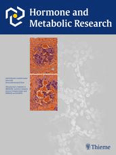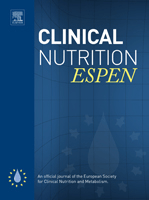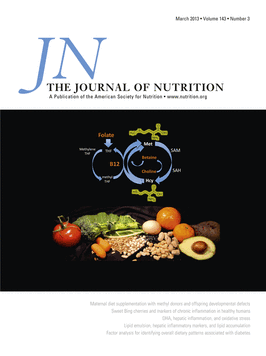
MAGNESIUM RESEARCH
Scope & Guideline
Deepening Understanding of Magnesium's Biochemical Significance
Introduction
Aims and Scopes
- Clinical Research on Magnesium's Health Impacts:
The journal publishes studies linking magnesium levels to a range of health outcomes, including cardiovascular diseases, diabetes, and neurological disorders. This includes observational studies and clinical trials assessing the effects of magnesium supplementation on various health metrics. - Nutritional Aspects and Dietary Intake of Magnesium:
Research often focuses on dietary sources of magnesium and its intake's role in preventing and managing chronic diseases, emphasizing the importance of magnesium-rich diets for public health. - Mechanistic Studies of Magnesium in Physiology and Disease:
Papers frequently explore the biochemical and physiological mechanisms by which magnesium influences health, including its role in muscle function, inflammation, and metabolic processes. - Pharmacological and Therapeutic Applications of Magnesium:
The journal highlights innovative applications of magnesium in treatment protocols, such as its use in pain management, surgery, and chronic disease interventions. - Public Health and Awareness Initiatives regarding Magnesium:
There is a focus on raising awareness of magnesium's health benefits and advocating for its inclusion in dietary guidelines and public health recommendations.
Trending and Emerging
- Magnesium's Role in COVID-19 and Related Complications:
A surge in studies investigating magnesium's potential role in managing COVID-19 symptoms and complications has emerged. This is critical given the pandemic's impact on global health and the need for effective therapeutic strategies. - Neuroprotective Effects of Magnesium:
Research focusing on magnesium's neuroprotective properties, particularly in neurodegenerative diseases such as Parkinson's, is gaining traction. This reflects an increasing interest in magnesium's role in brain health and mental well-being. - Integration of Magnesium in Multimodal Treatment Approaches:
Recent publications indicate a trend towards exploring magnesium as part of combination therapies for various conditions, such as metabolic syndrome and postoperative recovery, highlighting its utility in comprehensive treatment plans. - Impact of Magnesium on Mental Health:
Emerging research is focusing on the relationship between magnesium levels and mental health issues, including anxiety and depression, reflecting a broader trend in understanding the mind-body connection. - Magnesium's Influence on Inflammation and Immune Response:
Studies are increasingly examining how magnesium affects inflammatory markers and immune function, which is particularly relevant in chronic disease contexts and post-viral syndromes.
Declining or Waning
- Basic Research on Magnesium Chemistry:
Previous years saw a stronger emphasis on the basic chemical properties and interactions of magnesium compounds. Over time, the focus has shifted more towards clinical and applied research, leading to a reduction in purely chemical studies. - Magnesium's Role in Non-Health Related Applications:
Earlier publications included research on magnesium's industrial and agricultural applications. However, recent issues have increasingly concentrated on health-related themes, leading to fewer articles on non-medical uses. - Longitudinal Studies on Magnesium Deficiency without Clinical Correlation:
There has been a noticeable decline in studies that report on magnesium deficiency without directly linking it to clinical outcomes or interventions, indicating a trend towards more application-focused research.
Similar Journals

HORMONE AND METABOLIC RESEARCH
Decoding Metabolic Pathways Through Hormonal ResearchHORMONE AND METABOLIC RESEARCH, published by GEORG THIEME VERLAG KG, stands as a reputable platform in the fields of biochemistry, endocrinology, and metabolism since its establishment in 1969. This peer-reviewed journal provides critical insights and advancements in the intricate relationships between hormones and metabolic processes, catering to researchers, healthcare professionals, and students alike. With an impressive convergence of knowledge spanning over five decades, it maintains a commendable Q3 ranking in multiple categories, including Biochemistry, Clinical Biochemistry, and Endocrinology, highlighting its contribution to cutting-edge scientific discourse. Although not an open-access journal, it offers a plethora of access options for readers and institutions, ensuring that vital research reaches those who need it most. Located in Stuttgart, Germany, the journal is positioned at the forefront of influential research in hormone and metabolic studies, emphasizing its importance for ongoing investigations into health and disease.

Nutrients
Fostering collaboration for impactful nutritional research.Nutrients is a premier, peer-reviewed open access journal published by MDPI, dedicated to advancing the field of nutrition and dietary research. Since its inception in 2009, this journal has consistently garnered acclaim, achieving a Q1 ranking in both Food Science and Nutrition and Dietetics, reflecting its significant impact in these vital areas of study. With a robust Scopus ranking of #40 out of 389 in Food Science and #18 out of 140 in Nutrition and Dietetics, Nutrients has established itself as a leading platform for researchers, practitioners, and students aiming to share and gain insights into nutritional epidemiology, dietary interventions, and policy implications. Hailing from Basel, Switzerland, the journal ensures broader accessibility through its open access model, inviting diverse contributions that enhance our understanding of nutrition in health and disease. By fostering collaboration across disciplines, Nutrients not only serves as a resource for high-quality research but also encourages innovation essential for tackling global nutritional challenges.

Nutrition and Metabolic Insights
Unlocking the secrets of nutrition for better health outcomes.Nutrition and Metabolic Insights is a distinguished open-access journal published by SAGE Publications Ltd, dedicated to advancing the fields of nutrition, metabolic processes, and dietary sciences. Since its inception in 2008, this journal has carved a niche for itself within the academic community, offering a platform for rigorous research and innovative findings. With a focus on multidisciplinary approaches, it publishes articles that explore vital aspects of Endocrinology, Diabetes and Metabolism, Food Science, and Nutrition and Dietetics, earning recognition with a 2023 Q2 ranking in Food Science and Q3 rankings in other critical categories. Researchers and professionals can access cutting-edge research that not only contributes to academic discourse but also informs clinical practice and public health discussions. By facilitating the dissemination of knowledge, Nutrition and Metabolic Insights plays a crucial role in improving health outcomes worldwide, making it an essential resource for students, researchers, and health professionals alike.

CELL BIOCHEMISTRY AND FUNCTION
Exploring the Intricacies of Biochemical FunctionalityCELL BIOCHEMISTRY AND FUNCTION is a prominent journal dedicated to disseminating high-quality research in the fields of biochemistry, cell biology, and clinical biochemistry. Published by Wiley, this journal has maintained an esteemed reputation since its inception in 1983, bridging decades of scientific advancements and contributions until 2024. With ISSN 0263-6484 and E-ISSN 1099-0844, it serves as a vital resource for researchers, professionals, and students. The journal is classified in quartiles Q2 and Q3 across various categories in the 2023 rankings, showcasing its impact and significance within the academic community. Highlighting essential studies in medicinal biochemistry and cellular functionalities, CELL BIOCHEMISTRY AND FUNCTION not only presents cutting-edge research but also encourages interdisciplinary collaboration, thereby advancing the understanding of biochemical processes that underlie living systems. With no open access currently available, readers are encouraged to access articles through institutional subscriptions or individual purchases, ensuring exclusive engagement with the latest scientific findings in this dynamic field.

Journal of the American Nutrition Association
Elevating the Standards of Nutrition ScienceJournal of the American Nutrition Association is a premier scholarly outlet dedicated to advancing the field of nutrition science. Published by ROUTLEDGE JOURNALS, TAYLOR & FRANCIS LTD, this journal aims to disseminate high-quality research that addresses the complexities of diet, health, and nutrition in various populations. With a robust impact factor demonstrating its significance in the realm of Medicine and Nutrition, it holds notable ranks in both the Medicine (miscellaneous) and Nutrition and Dietetics categories within Scopus. The journal supports a vision of expanding access to vital nutrition research through its open-access options, enhancing the visibility and impact of published works. As it continues to evolve from 2022 to 2024, the Journal of the American Nutrition Association stands as an invaluable resource for researchers, health professionals, and students keen on contributing to and staying informed about the latest advancements in nutrition science.

Antioxidants
Empowering health through cutting-edge antioxidant research.Antioxidants is a premier open-access journal published by MDPI that has been actively contributing to the field of antioxidant research since its inception in 2012. Based in Switzerland, the journal holds a noteworthy impact factor indicative of its scholarly influence, particularly given its high rankings in various categories. As of 2023, it proudly sits in the Q1 quartile in Biochemistry, Clinical Biochemistry, Food Science, and Physiology, solidifying its status as a critical resource for innovative studies. With a strong focus on the roles of antioxidants across multiple disciplines—ranging from molecular biology to food science—this journal serves as a vital platform for researchers, professionals, and students aiming to advance knowledge in mitigating oxidative stress and enhancing health through dietary and therapeutic approaches. The open-access model guarantees wide accessibility, allowing for the dissemination of significant research findings globally, making it indispensable for anyone engaged in modern biochemical and physiological studies.

Asian Biomedicine
Empowering Innovation in BiomedicineAsian Biomedicine, published by WALTER DE GRUYTER GMBH, serves as a crucial platform for disseminating pioneering research in the field of biomedical sciences. Established in 2008, this journal has carved its niche in the landscape of academic publishing, concentrating on a diverse array of topics within biochemistry, genetics, and molecular biology, as well as medicine. Though it currently holds a Q4 ranking in its category, it is dedicated to fostering academic discussions and advancing knowledge among researchers, professionals, and students alike. While the journal features a variety of access options, it is committed to ensuring that its content remains relevant and impactful, with an emphasis on the latest developments and research trends. The editorial board encourages submissions that address pressing biomedical issues, thus empowering contributors to engage meaningfully with the scientific community. With a broad international scope and a focus on quality, Asian Biomedicine is poised to play an increasingly important role in the advancement of biomedical research in Asia and beyond.

Clinical Nutrition ESPEN
Driving Innovation in Nutrition for Healthier FuturesClinical Nutrition ESPEN is a distinguished journal published by ELSEVIER, focusing on the critical intersection of clinical nutrition and metabolic health. With an ISSN of 2405-4577, this journal serves as an essential resource for researchers, practitioners, and students in the fields of Endocrinology, Diabetes and Metabolism as well as Nutrition and Dietetics. Operating out of the United Kingdom, it has garnered a respectable Q2 ranking in both categories for 2023, indicating its significant impact and relevance in the field. Although it does not follow an open access model, the journal offers valuable insights into contemporary nutrition research, clinical practices, and dietary interventions, making it a vital tool for those committed to improving patient outcomes through nutritional science. In its evolving journey, covering work from 2015 to 2024, Clinical Nutrition ESPEN continues to shape the dialogue in nutrition research, addressing pressing health challenges and fostering innovation in dietetic practice.

JOURNAL OF NUTRITION
Unveiling the science behind what we eat.JOURNAL OF NUTRITION is a premier academic journal published by Elsevier Science Inc, dedicated to advancing the understanding of nutritional science and its impact on health. With a long-standing tradition since its inception in 1945, the journal provides a vital platform for high-quality research, featuring articles that cover a wide range of topics within the fields of Medicine and Nutrition and Dietetics. Recognized for its significant contributions, the journal holds an impressive impact factor, with a Q1 rank in both Medicine (miscellaneous) and Nutrition and Dietetics as of 2023, positioning it among the top tier of scholarly publications in these disciplines. The Scopus Rankings further validate its status, boasting a rank of #57/398 in Medicine and #30/140 in Nutrition, indicating its influential presence in the research community. Although it operates under a traditional access model, the journal actively engages with a global audience of researchers, professionals, and students by disseminating cutting-edge insights designed to inform nutrition policy and practice. By focusing on current trends, innovative methodologies, and evidence-based nutrition strategies, the JOURNAL OF NUTRITION continues to be an essential resource for those committed to enhancing health through nutrition.

TRACE ELEMENTS AND ELECTROLYTES
Advancing Knowledge in Biochemical InteractionsTRACE ELEMENTS AND ELECTROLYTES is a prominent academic journal published by DUSTRI-VERLAG DR KARL FEISTLE, focusing on key advancements and research findings in the fields of biochemistry and clinical biochemistry. With an ISSN of 0946-2104, this journal serves as a crucial platform for disseminating knowledge related to the roles of trace elements and electrolytes in biological systems. Although the journal's coverage in Scopus was discontinued in 2016, it maintained a respectable presence during its active years, ranking across various categories, including clinical biochemistry and inorganic chemistry. Researchers and professionals will find that the journal provides valuable insights, aiding in the understanding of micronutrient interactions and their implications for health. By exploring this journal, one can engage with a wealth of historical data and research narratives that are instrumental in the ongoing discourse in the biological sciences.